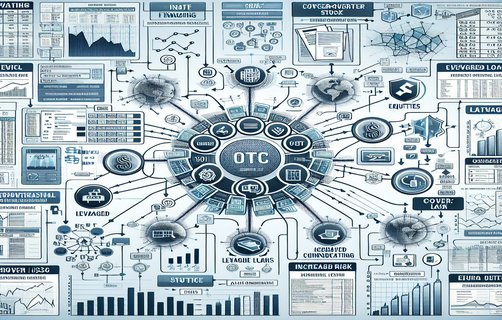 TPwallet官网-TP钱包APP官方网站/安卓通用版/2024最新版-TP钱包(TPWallet)官网|你的通用数字钱包 - tpwallet
TPwallet官网-TP钱包APP官方网站/安卓通用版/2024最新版-TP钱包(TPWallet)官网|你的通用数字钱包 - tpwallet
Exploring the Future of Privacy Protection Technologies and Economic Innovation through Blockchain
Introduction:

The rapid development of technology has brought tremendous changes to our lives, but it has also raised concerns about privacy and data security. In order to address these challenges, privacy protection technologies have become increasingly important. Furthermore, the emergence of blockchain technology has provided new opportunities for enhancing privacy and security in various applications. This article will delve into the discussion of the future prospects of privacy protection technologies and economic innovation with a focus on blockchain.
User Privacy Protection Technologies:
User privacy protection technologies play a crucial role in safeguarding individuals' personal information in the digital age. With the proliferation of online services and platforms, the threat to user privacy has become more prominent. To address this issue, encryption techniques, decentralized identity management systems, and anonymization methods are being utilized to protect user data from unauthorized access.
Future Economic Innovation:
The integration of blockchain technology has the potential to revolutionize various industries and drive economic innovation. By leveraging smart contracts and decentralized applications (DApps), businesses can streamline operations, reduce costs, and enhance security. Additionally, blockchain enables the creation of new business models such as tokenization of assets, which can unlock liquidity and facilitate investment opportunities.
Expert Insights and Analysis:
Experts believe that blockchain technology has the capability to disrupt traditional industries, create new markets, and foster innovation. By providing transparency and immutability to transactions, blockchain enhances trust among parties and reduces the need for intermediaries. As a result, experts predict that blockchain will play a significant role in shaping the future of the global economy.
Multi-Chain Digital Assets and Real-Time Market Monitoring:
With the proliferation of cryptocurrencies and digital assets, the need for multi-chain interoperability has become crucial. Interconnecting different blockchain networks allows for seamless transfer of assets and enhanced liquidity. Real-time market monitoring tools provide investors with up-to-date information on asset prices, trading volumes, and market trends, allowing them to make informed decisions.
Future-Oriented Technological Platforms:
As the demand for advanced technological solutions grows, companies are investing in future-oriented platforms that incorporate artificial intelligence (AI), internet of things (IoT), and big data analytics. These platforms enable businesses to harness the power of data, automate processes, and drive innovation. By integrating blockchain with these technologies, companies can create secure and scalable solutions for various use cases.

Identity Management:
Identity management is a critical aspect of privacy protection, especially in the digital realm. Blockchain-based identity management systems offer enhanced security, privacy, and control over personal data. With self-sovereign identity solutions, individuals can manage their identities without reliance on centralized authorities, thereby reducing the risk of identity theft and fraud.
Conclusion:
In conclusion, the future of privacy protection technologies and economic innovation looks promising with the integration of blockchain technology. By embracing decentralized and secure solutions, businesses and individuals can mitigate privacy risks, drive innovation, and unlock new opportunities in the digital economy.
- 05-02在TP钱包中购买HT的全景解析:数字资产时代的选择与机遇
- 05-01连接数字货币世界的桥梁:TP钱包的全面分析与未来展望
- 05-02重塑金融生态:TP钱包的创新之路
- 05-01探索TP钱包合约地址的全景:智能合约与区块链技术的未来
- 05-02解密TP钱包:安全、便捷与市场的平衡艺术
- 05-01数字货币投资指南:探索TP钱包中的新机遇与未来
- 05-01探索TP钱包:数字货币购买与未来市场演进
- 05-01智能合约创新与高效支付管理的深度融合
- 05-01从V1到V2:TP钱包资产迁移全解析与技术探讨
- 05-02数字化时代下的安全堡垒:TP钱包的全方位评估
- 05-01Matic生态系统中的TP钱包集成:引领智能科技与用户体验的新纪元
- 05-02DeFi与TP钱包:引领未来金融创新的安全之路
- 05-02TP钱包与币安链生态:引领区块链创新与数字金融的未来之路
- 05-02TP钱包与OK链:重新定义多链时代的交易未来
- 05-02连接未来:TP钱包客服联络方式与行业趋势的思考
- 05-02探索TP钱包: 数字资产交易的新纪元
- 05-02TP钱包全球巡回发布会:引领智能科技与安全加固的未来
- 05-02空投新时代:TP钱包与实时支付系统的未来交织
- 05-01探索区块链透明性:如何查看他人的TP钱包余额
- 05-02数字资产的安全之路:从盗窃到防范的未来进程
- 05-01重装TP钱包:技术、新兴市场与未来展望的全面分析
- 05-02探秘TP钱包的博饼之道:灵活支付与未来愿景
- 05-02未来支付的革命:在全球化智能支付服务中探索隐私和便捷
- 05-02数字化未来:TP冷钱包与智能商业生态的交融与演变
- 05-02探索 TP 钱包的智能生态:数字金融安全与高并发的未来
- 05-01探索TP钱包:用户友好界面与智能化生活的完美融合
- 05-02在数字世界中航行:安全下载TP钱包的全景探讨
- 05-01探索SHIB提币至TP钱包的多重潜力:连接未来与效率
- 05-02破解数字资产管理的密码:细看TP钱包与其未来
- 05-02TP钱包携手Dogecoin:重塑数字支付的未来
- 05-02探索TP钱包中的BT:科技、商业与安全的交汇点
- 05-01从TP钱包到抹茶:数字资产的魔法转移之旅
- 05-02解锁苹果用户的新纪元:TP钱包App的全面升级与未来展望
- 05-01数字资产的安全对话:TP钱包在冷钱包与合约同步中的应用探析
- 05-01数字金融时代的先锋:TP钱包在全球智能支付系统中的崛起
- 05-01TP钱包集成Matic生态系统:打造未来数字资产管理的新常态
- 05-02无ETF转移的灵活支付: 从全球智能支付看TP钱包的未来
- 05-02智能投资新时代:如何通过TP钱包购买HTMoon
- 05-01TP Wallet:数字资产管理的未来之钥
- 05-02揭秘TP钱包的真伪:智能化金融管理在加密资产中的前景评析
- 05-01探索数字资产的未来:如何高效安装TP钱包及其对用户体验的影响
- 05-02探索TP钱包与USDT的未来:智能合约与安全支付的结合
- 05-02数字时代的金融革新:多币种钱包的未来与优势
- 05-02TP钱包:探索数字资产管理的未来
- 05-02多维度视野下的科技支付与资产管理新篇
- 05-01TP钱包:区块链时代数字资产管理的利器
- 05-01解密TP钱包自定义地址:重塑数字支付的未来
- 05-01掌控数字资产:深度探讨TP钱包与抹茶钱包的优劣及其对未来金融生态的影响
- 05-02探索TP钱包:数字资产安全与全球创新的双重保障
- 05-01探索未来:多链支持与全球化创新下的虚拟货币市场趋势